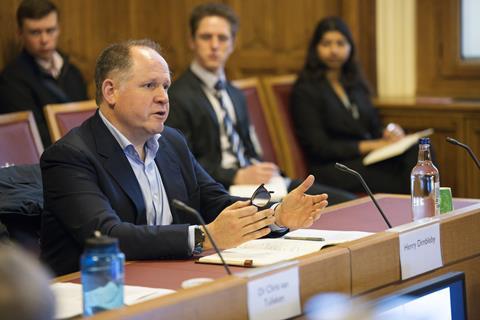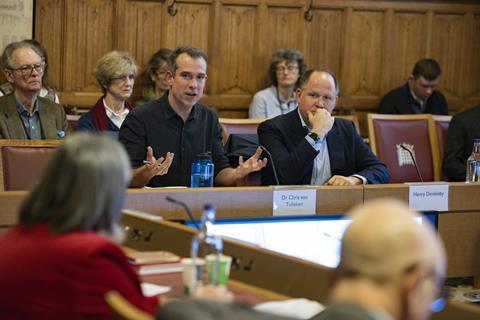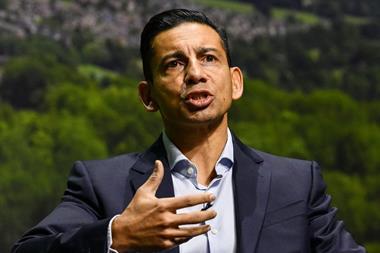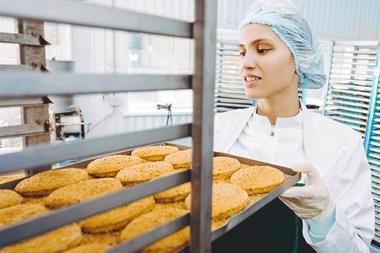
Former government food tsar and National Food Strategy author Henry Dimbleby has called for a 24-hour total ban on advertising of ultra-processed and HFSS foods, in his most radical attack yet on the food industry.
Dimbleby also called for the introduction of black octagon warning signs, such as those used in Chile, to be used on the front of packs of all UPFs and HFSS foods.
The Leon restaurant founder, who quit his role as a government adviser last year in protest at its lack of action on his calls for a raft of new taxes on the industry, said the obesity crisis had reached a tipping point and only regulatory action would work to reverse it.
Dimbleby was giving evidence to the House of Lords select committee on food, diet and obesity, which is investigating the links between UPFs and HFSS food and the obesity crisis.
When he was asked what the main government approach to tackling the crisis should be, Dimbleby went even further than his 2021 report, which backed calls for a 9pm watershed, suggesting the government should ban any advertising for HFSS and UPF products.
“I would intervene by restricting advertising of all this food, I would say you can’t advertise it. It should be banned, and not just before the watershed,” he said.
The health warnings should be added on labels because the traffic light system had failed to work and was misleading to people looking for healthy choices, the committee heard.
Read more:
-
Report ‘names and shames’ companies for reliance on food sales harming kids
-
Calorie reduction programme in crisis following big increases in families’ intake
-
Health lobby backs government plans for food industry HFSS reporting
-
Labour considering banning sales of energy drinks to under-16s
-
Watch: Navigating the ultra-processed food debate
Dimbleby, who recently launched a venture fund called Bramble Partners to back investments in health and eco products, said he believed it was inevitable the next government, whoever wins the election, would be forced to crack down harder on the food industry to tackle obesity.
He also called for the Food Standards Agency (FSA) to be given new mandatory powers to oversee statutory targets on HFSS reduction.
Dimbleby announced an astonishing attack on food bodies, who he said were being paid to protect the interests of companies reliant on junk food sales that were driving the obesity crisis.

“You have groups whose literal job is to be paid to resist any change of interference,” he said.
“The Food & Drink Federation (FDF) was critical to keeping our food moving during Covid and they did some amazing things, but at the same time Karen Betts, who is the CEO now – her job does not allow her to say this [obesity] is a problem.”
Dimbleby said it was time for people in the industry to follow their consciences and stop promoting junk food.
“We have had isolated examples, like Roger Whiteside when he was CEO at Greggs, who said we need more government action. There are some people who are beginning to say we can’t do this on our own.
“But basically, the role of food companies in policy creation has been to try to throw shade and make it very difficult to create policy.
“At the minimum they should try to just stand back and not lean into ministers’ ears. That is the moral thing to do. They should look at their children and not do that.”
The inquiry is looking at the role of the food and drink industry in driving sales, and exploring future policy tools that could prove effective in preventing obesity.



















3 Readers' comments